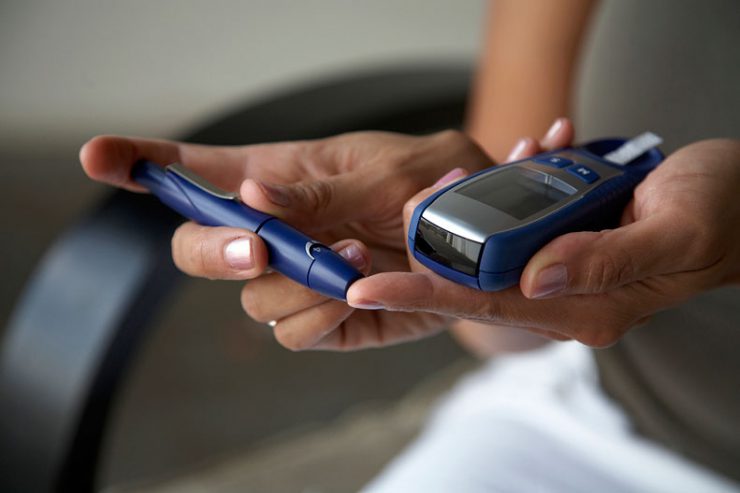It’s clear that bariatric surgery can be a useful tool for people who need to lose 100 pounds or more. It may help you achieve long-term weight loss, reduce or eliminate life-threatening weight-related conditions, increase longevity, and improve your quality of life. But can bariatric surgery also control or even help reverse type 2 diabetes?
Diabetes and Bariatric Research
According to research, including studies conducted at UPMC, it’s quite possible for patients to control or reverse type 2 diabetes through weight loss surgery.
In one UPMC study, researchers looked at data from male and female patients at 10 different hospitals who had undergone either gastric bypass surgery or laparoscopic gastric banding. After three years, of the people who had specific obesity-related health problems prior to surgery, 67 percent experienced partial remission from diabetes. These findings were published in 2013 in the Journal of the American Medical Association (JAMA).
More recently, UPMC investigators randomly assigned 61 people to one of three groups: gastric bypass surgery, laparoscopic gastric banding, or a nonsurgical intensive weight-loss program. All of the patients also followed lifestyle modification approaches.
After three years, 40 percent of the first group and 29 percent of the second group had partial or full remission of diabetes, compared to none of those in the third group. In addition, that remission lasted at least two years in 45 percent of first group and 29 percent of the second group.
This study, which was published online in JAMA Surgery, is one of just a few to look at the long-term effects of bariatric surgery on diabetes.
Bariatric Surgery and Procedure Options
There are several different types of bariatric surgery, but the two that have been best studied for their effect on diabetes are gastric bypass surgery and laparoscopic gastric banding.
What is gastric bypass surgery?
Also called the Roux-en-Y gastric bypass procedure, it is the most common form of weight loss surgery performed in the United States today. In this surgical procedure, the surgeon creates a small pouch that bypasses the stomach and attaches to the intestine. This pouch will act as your new stomach permanently. The pouch can hold only about one cup of food, compared to the four to six cups of a normal stomach.
What is laparoscopic adjustable gastric band surgery?
Also known as adjustable gastric banding, laparoscopic gastric banding involves the insertion of a thin, inflatable ring called a gastric band to create a new, smaller stomach pouch so you feel full sooner. Unlike traditional gastric bypass surgery, lap band surgery is minimally invasive and reversible.
How Does Bariatric Surgery Help Diabetes?
Both types of bariatric surgery may help control type 2 diabetes by reducing visceral fat — the kind of fat around internal organs — which contributes to problems with blood sugar.
Bariatric surgery also may improve blood sugar control by altering levels of gut hormones. In addition, the procedure helps speed up weight loss, which can motivate you and encourage you to stick to your lifestyle goals of eating well and exercising regularly.
For more information on bariatric surgery, visit the UPMC Bariatric Surgery Center of Excellence.
Editor's Note: This gallery was originally published on , and was last reviewed on .
